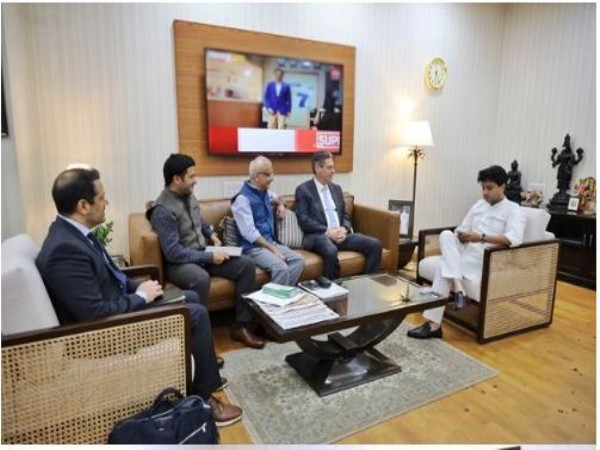New Delhi [India], March 17 (ANI): The Department of Telecommunications (DoT) has collaborated with WhatsApp to extend ‘Scam Se Bacho,’ Meta’s safety campaign against online scams and spam. As part of the collaboration, DoT and WhatsApp will work together to educate citizens on identifying & reporting suspected fraud communications in an effort to enhance digital safety and awareness, said an official statement from the Ministry of Communications
DoT has taken various Initiatives to prevent misuse of telecom resources in cybercrime and financial frauds. A citizen centric Sanchar Saathi initiative in the form of portal (https://sancharsaathi.gov.in) & Mobile App has been developed to empower citizens to report suspect suspected fraud calls/messages, know their mobile connections and Block & Trace lost/ stolen mobile handsets among other facilities. Digital Intelligence Platform (DIP) of DOT exchange bidirectional digital intelligence with 550 stakeholders like banks, LEAs, about misuse of telecom resources and subsequent action,as per the ministry.
In a significant step to enhance digital safety and awareness on ground, the initiative will include train-the-trainer workshops for DoT officials, Sanchar Mitras, Telecom Service Providers (TSPs), and field units. WhatsApp will also work with DoT to explore ways to build citizen-centric services of Sanchar Saathi initiatives through WhatsApp platform for wider reach of Sanchar Saathi, the statement said.
Joel Kaplan, Chief Global Affairs Officer, Meta met the Union Minister of Communication and Development of North East Region, Jyotiraditya Scindia on Monday and discussed the effectiveness of ongoing collaboration of DoT and Meta. WhatsApp is collaborating with Digital Intelligence Unit of DoT and using the information provided by through DIP for proactive action on misuse of telecom resources for cybercrime and financial frauds.
Commenting on the partnership, the Union Minister of Communication and Development of North East Region, Jyotiraditya Scindia said, “As India advances on its path of digital transformation, ensuring the safety and security of our citizens remains a top priority. Our partnership with Meta strengthens this commitment to protect our people from fraudulent communications and cyber threats. By harnessing WhatsApp’s vast digital reach, we are strengthening efforts to ensure that our digital ecosystem remains secure and resilient for all”.
Joel Kaplan, Chief Global Affairs Officer, Meta, added, “The best way to stop people falling victim to scams and online fraud is to make sure they know what to look out for and what they can do to stay safe. That’s why Meta invests a great deal in technology and resources to try and stay ahead of the scammers and give people the information they need. By working with the Department of Telecommunications, we can combine our technological expertise with the government’s commitment to citizen safety and help give Indians the knowledge they need to stay safe.”
As part of the partnership, WhatsApp will also develop informative assets in collaboration with DoT to educate users on how to identify and report online scams and spam. These will cover different types of fraud, warning signs, and reporting mechanisms available on the Sanchar Saathi. All user safety materials will be translated into regional languages, including Hindi, Bengali, Marathi, Tamil, Telugu, Kannada, Malayalam, and Gujarati to maximize accessibility, it added.
DoT is steadfastly committed to preventing the misuse of telecom resources by implementing advanced solutions and working closely with various stakeholders. Awareness of the citizens will help them keeping safe in the evolving digital ecosystem, it further said. (ANI)
Disclaimer: This story is auto-generated from a syndicated feed of ANI; only the image & headline may have been reworked by News Services Division of World News Network Inc Ltd and Palghar News and Pune News and World News
HINDI, MARATHI, GUJARATI, TAMIL, TELUGU, BENGALI, KANNADA, ORIYA, PUNJABI, URDU, MALAYALAM
For more details and packages











